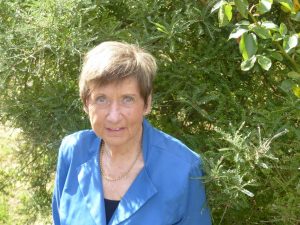
Claire Marsh
17 March 2017 – Speech New Zealand teacher, examiner and trustee Claire Marsh of Morrinsville shares an experience she had recently with a confident autistic boy sitting a speech exam.
Speech New Zealand is an examining organisation that aims to empower students to develop versatility in the use of language and oral presentation and performance skills.
It provides a range of examination topics including:
- Speech and drama
- Public speaking
- Theatre-in-Action
- Oral communication in schools.
Either a speech and drama teacher within the school teaches students sitting these exams or they have private tuition.
As an examiner, I recently had a delightful and inspiring experience when examining a group of three boys sitting the grade 4 exam.
The requirement for the first exercise was: ‘Give an informative talk on a topic of interest you have researched.’
One of the boys, John*, selected to talk about autism. He had prepared a creative chart that reinforced his main points, had depth of knowledge and engaged his audience throughout the talk. He concluded with the words:
‘I know about this, because I have autism!’
He was confident, fluent and both informed and inspired his audience. While John had confidence in mastering skills of communication, not all students on the spectrum are as assured.
Speech New Zealand encourages students with learning differences to sit grade examinations either under the general syllabus or under the Certificate of Attainment.
The Certificate of Attainment may relate to a candidate with any learning difference, which may affect their performance if the examiner is satisfied that they are doing the best work of which they are capable.
One of our teachers shared the processes she uses when teaching students on the autism spectrum. She finds rapport can be more easily established with these students by working one-on-one with them. Once she has established some trust they start to play with objects, materials, properties and start developing imaginative exchanges. She leaves the initiative entirely with the student.
After a few sessions of connecting in this way, the trust and confidence usually develops quickly and the teacher can start shaping techniques for activities working with a friend or a small group of neurotypical students. This teacher is amazed at how quickly the autistic student gains confidence and extends their creativity by being part of a group.
(*) not his real name
Speech New Zealand
For more information contact: Speech New Zealand, P O Box 12023, Wellington 6144 Telephone: 04 498 9660 Email:
Website: www.speechnz.co.nz
This article was first published in Altogether Autism Journal Issue 1, 2017 read the latest edition.


